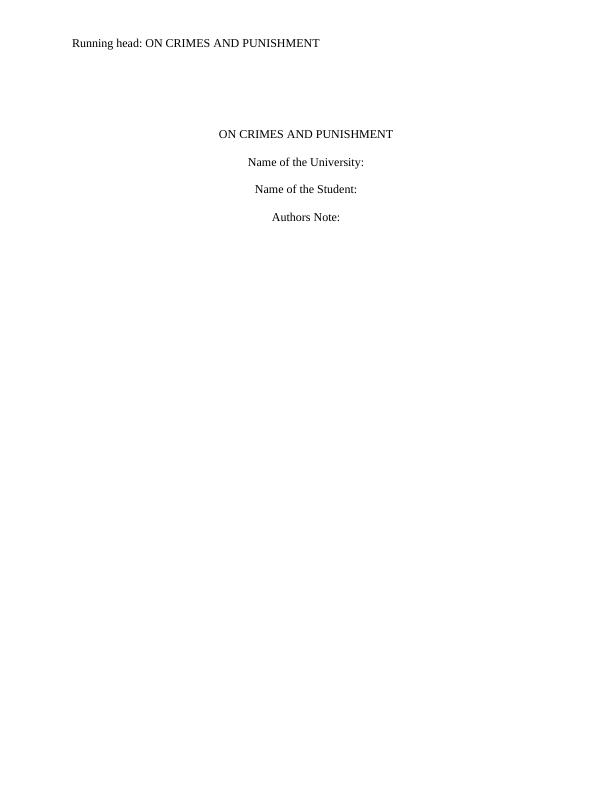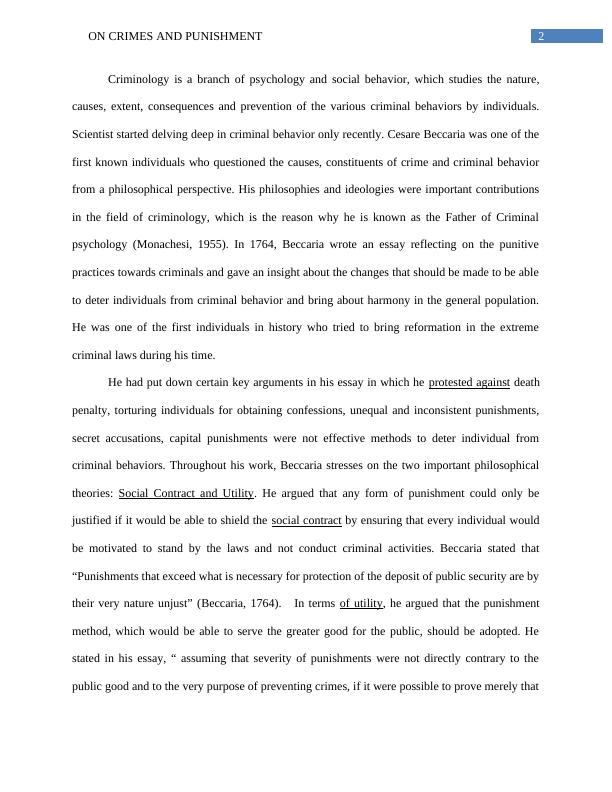On Crimes and Punishment - A Critical Analysis of Cesare Beccaria's Philosophies
Added on 2023-06-14
5 Pages1097 Words212 Views
End of preview
Want to access all the pages? Upload your documents or become a member.
Classical School of Criminology: Punishments for Robbery, Manslaughter and Breaking and Entering
|6
|1324
|481
Classical Readings in Criminology - Criminal Law
|7
|1739
|16
Summary Analysis of Classical and Positivist Schools of Thought in Criminology
|5
|987
|79
Paper on Theories of Criminology
|10
|2086
|311
Assignment on Criminology Solved
|8
|1386
|94
Essay on Concept of Social Control
|12
|4593
|48

